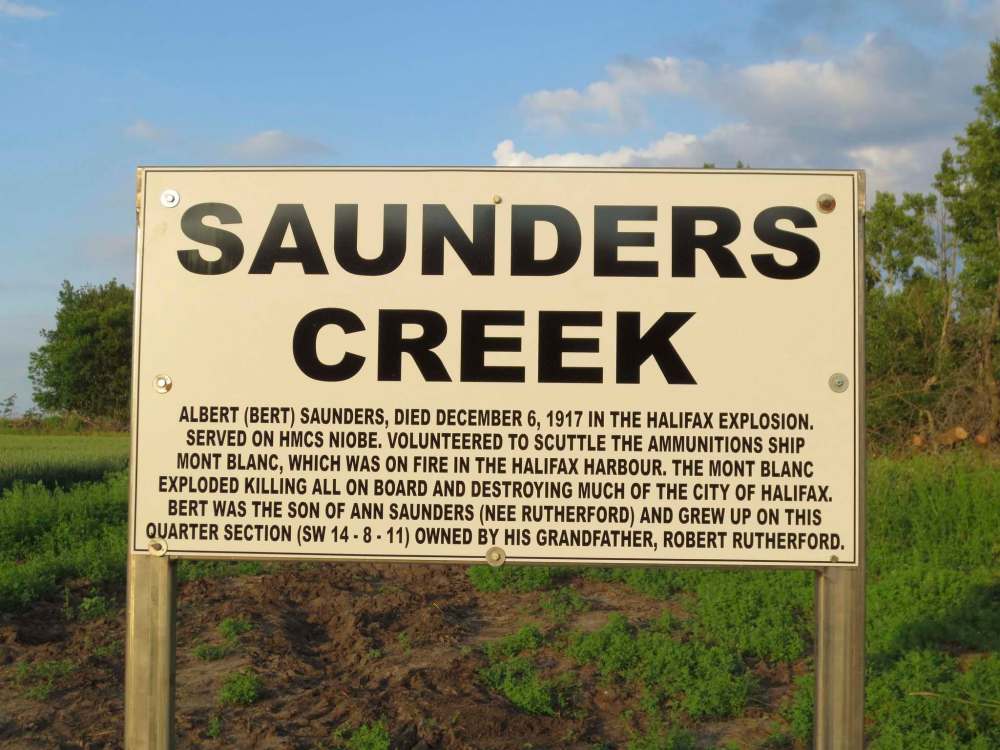Honour soldiers where they lived
Advertisement
Read this article for free:
or
Already have an account? Log in here »
To continue reading, please subscribe:
Monthly Digital Subscription
$1 per week for 24 weeks*
- Enjoy unlimited reading on winnipegfreepress.com
- Read the E-Edition, our digital replica newspaper
- Access News Break, our award-winning app
- Play interactive puzzles
*Billed as $4.00 plus GST every four weeks. After 24 weeks, price increases to the regular rate of $19.95 plus GST every four weeks. Offer available to new and qualified returning subscribers only. Cancel any time.
Monthly Digital Subscription
$4.99/week*
- Enjoy unlimited reading on winnipegfreepress.com
- Read the E-Edition, our digital replica newspaper
- Access News Break, our award-winning app
- Play interactive puzzles
*Billed as $19.95 plus GST every four weeks. Cancel any time.
To continue reading, please subscribe:
Add Free Press access to your Brandon Sun subscription for only an additional
$1 for the first 4 weeks*
*Your next subscription payment will increase by $1.00 and you will be charged $16.99 plus GST for four weeks. After four weeks, your payment will increase to $23.99 plus GST every four weeks.
Read unlimited articles for free today:
or
Already have an account? Log in here »
Hey there, time traveller!
This article was published 12/11/2016 (3356 days ago), so information in it may no longer be current.
On Friday, small groups of people gathered in communities across the province to honour soldiers who died in the line of duty.
In many rural towns, the community cenotaph is one of the few remaining places for people to gather. The lists of names found on them are often short. Even in those days, many of these communities were small. But local family histories in these communities tend to be interwoven by marriage; their collective memories are long.
And although Royal Canadian Legions in many rural areas are struggling as their members age, they remain dedicated to keeping those memories not only alive, but meaningful.

So it was that the members of the legion in Holland, Man., came up with the idea of naming local water bodies and landmarks in the farming community after area soldiers who didn’t come home — instead of adhering to the provincial custom of naming a place in a remote part of the province.
These aren’t big lakes like you might find in the north. In fact, many of the creeks and tributaries they’ve been lining up for their project aren’t much more than glorified ditches. But they are local, accessible and places where a sign can be erected to tell a story. That’s how memories live on.
“The homesteads in many municipalities date back over 135 years. There are creeks, hills etc. that are unnamed to this day,” said Les Ferris, who heads up the local legion.
After nearly five years of work, they were successful in getting two area creeks named after local servicemen, and potentially a third.
There is now a Saunders Creek, named after Albert Saunders who died in Halifax in 1917 while trying to scuttle the burning munitions ship before it exploded, wiping out much of the city. There is also a McGill Creek, named after James McGill, whose plane was shot down behind enemy lines in 1918.
But then the provincial government announced earlier this year it was officially extending a program initiated to honour Second World War veterans to include soldiers who fought and died in the First World War.
So far, 4,200 lakes, islands, bays and other geographical features have been pinned with the names of fallen soldiers. Families can nominate loved ones and ask that a geographical designation be made.
Recently, the Holland legion received notice that future nominations from its area would be designated according to the provincial program protocols, which follow a randomized approach to designating an unnamed northern waterway.
Ferris agrees that the provincial program is a noble gesture. But he questions why the designations must be limited to remote and unmarked northern locations reachable only by float plane.
“As a legion, our motto is, ‘We will remember them.’ We hope your department will remember them honourably in their local communities rather than taking the easy way out in naming remote locations that no one will ever see,” he wrote in a letter to the province.
“By naming local geographical formations, the public is able to identify that these men actually lived here and are not just a name in a book or on the local cenotaph.”
No one from the provincial government agreed to be interviewed. An emailed statement issued by a spokesperson who refused to be named says the random approach “has ensured that every casualty, regardless of the soldier’s rank, decoration, hometown, military or personal achievements is treated equally and respectfully.”
Correspondence between Ferris and provincial officials suggests the government thinks it too complicated to choose landmarks in more populated areas. Permissions must be obtained from local municipalities, which takes too long. And what happens if two soldiers had lived close to the same creek?
No doubt it is more complicated, but it seems to Ferris and his crew the province is taking the easy way out. It’s a good thing those young men and women who voluntarily agreed to fight in the First World War didn’t make the same call. Lest we forget.
Laura Rance is editorial director for Farm Business Communications. She can be reached at
laura@fbcpublishing.com or 204-792-4382.

Laura Rance is editorial director at Farm Business Communications.
Our newsroom depends on a growing audience of readers to power our journalism. If you are not a paid reader, please consider becoming a subscriber.
Our newsroom depends on its audience of readers to power our journalism. Thank you for your support.


